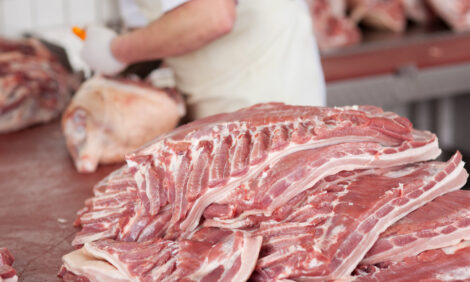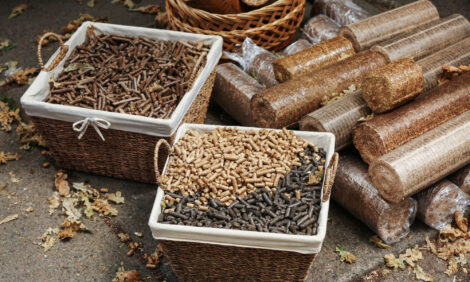



Tracking the Effect of Chicory on Boar Taint
DENMARK - The discovery of how chicory affects boar taint can, in the long run, open the door to a more targeted and efficient way of preventing boar taint via the feed.
[Photo: Flemming Nielsen]
If you have ever experienced the malodour of cooked, boar-tainted pork, then you will know that it is not very appetising. In order to avoid giving consumers this unpleasant experience, most male pigs in Denmark are castrated. Castration is uncomfortable for the pig and extra work for the farmer, but has until recently been the only viable solution to the problem.
Earlier studies at Aarhus University have shown that feeding pigs chicory can replace castration. Scientists have now taken a step closer to understanding how chicory affects boar taint. Their discovery can put the scientists on the track to finding a cheaper and more efficient way of using chicory as a replacement for castration. This would benefit the pig, the farmer and the consumer.
If the farmer feeds his pigs chicory for 14 days prior to slaughter he can avoid unpleasant boar taint in the pork. Feeding chicory is, however, not very widespread on Danish farms. One of the reasons is that chicory is too expensive.
Exploring the liver
If the scientists can home in on how the beneficial effect of chicory originates then that knowledge could pave the way for new possibilities of feeding chicory or bioactive compounds from chicory or other plants containing the bioactive compounds. To begin with, though, the scientists must find out how feeding pigs chicory is related to reduced boar taint. This is what they have recently come a step closer to understanding.
"We can see that there is a reduced skatole content in pig’s fat and blood when the pig has been fed chicory for 14 days prior to slaughter. We investigated if this is because metabolism of the compound in the liver is improved for some reason. We conducted analyses to find the liver enzymes that metabolise skatole and androstenone and found that the enzyme content was higher and that enzyme activity was greater after feeding chicory," says PhD student Martin Krøyer Rasmussen from Aarhus University.
Skatole is produced by bacteria in the pig gut from which it is absorbed into the blood. Via the blood the compound finds its way to the liver where it is broken down by enzymes.
Pheromones also smell
Androstenone is also a problem. It is a pheromone produced in the pig’s testicles. It is also metabolized in the liver. Androstenene inhibits skatole metabolism. If skatole and androstenone are not metabolised in time with their production, they accumulate in the fat and give rise to boar taint in pork.
"In our studies we also found a clear effect of chicory on androstenone. We measured less androstenone in the fat, a higher level of the enzyme that metabolizes androstenone in the liver, and higher levels of the particular mRNA and protein that need to be present to build the enzyme," explains Mr Rasmussen.
The next step for the scientists will be to find out if there is something bioactive in chicory that stimulates the liver directly or if the body is affected in some other way so that the liver reacts indirectly. The scientists will investigate this by subjecting liver cells grown in the laboratory to chicory directly and thereafter measuring if there is a higher enzyme level.
"If there is no effect on the enzyme level in the cultivated liver cells, then it is because the chicory has an effect somewhere else in the body," says the PhD student, who, at the end of the day, hopes to find the bioactive substance in chicory.
"Chicory is used to produce inulin. If the bioactive substance we are seeking can be produced as a by-product of inulin production, then it might be a cheaper way to give it to pigs. Another possibility is that, when we find the bioactive compound, we look for the compound in other plants or produce it artificially, he explains and adds that are indications that chicory can put a damper on aggression in male pigs," he says.
The project is supported by the Ministry of Food, Agriculture and Fisheries and the agricultural company DLG and is being carried out in collaboration with the Swedish University of Agricultural Sciences.







